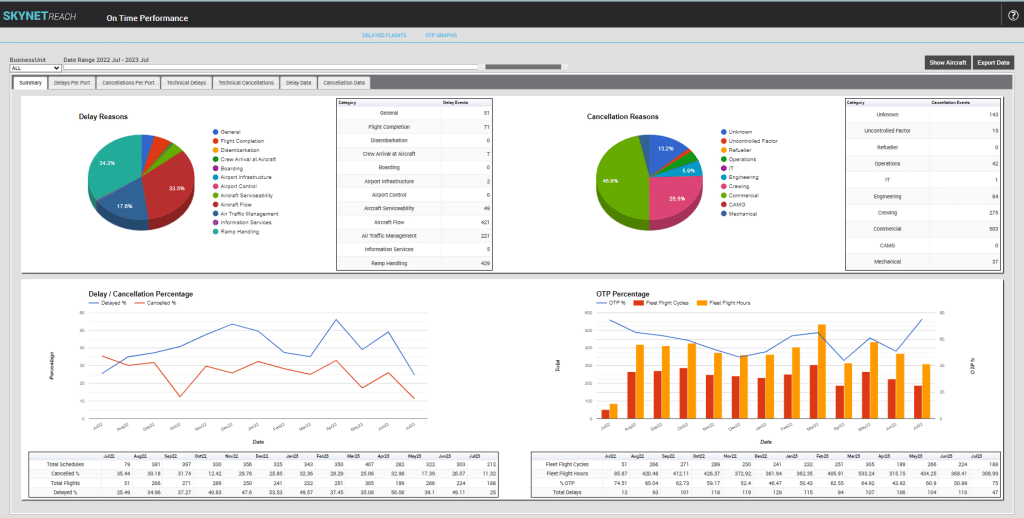On-Time-Performance can be a valuable factor in contract negotiations between airlines and various stakeholders, such as airports, ground handling service providers, maintenance providers, and even passengers.
Here are our Top 5 ways that OTP can influence contract negotiations:
1. Service Level Agreements (SLAs)
OTP can be included as a key performance indicator (KPI) in SLAs between airlines and service providers.
For example, an airline may negotiate with an airport or ground handling company to ensure a certain level of on-time performance for their flights. The SLA may specify the percentage of flights that must adhere to the schedule, along with penalties or incentives based on OTP performance.
2. Operational Requirements
Airlines can leverage their historical OTP data to negotiate operational requirements in contracts.
They may request specific turnaround times, preferential gate assignments, or other operational support to improve their OTP. Strong OTP records can provide airlines with leverage in such negotiations, allowing them to demand higher service quality and performance standards.
3. Penalty Clauses
In contracts involving time-sensitive operations, such as cargo shipping or charter services, penalties for delays are often negotiated.
Good OTP can provide airlines with a stronger position to negotiate lower or more favourable penalty clauses. Conversely, if an airline consistently struggles with OTP, it may have to accept stricter penalty terms or face potential consequences.
4. Partnerships and Alliances
Airlines seeking to enter partnerships or alliances with other carriers may consider OTP as a critical factor.
When negotiating partnerships, airlines often evaluate the OTP records of potential partners. A carrier with a strong OTP performance may be preferred as it ensures smoother connections and a better overall travel experience for passengers. This consideration can influence negotiations and partnership agreements.
5. Passenger Compensation and Rights
In the case of passenger-focused contracts, such as ticketing and travel agreements, OTP may be considered for compensation and passenger rights clauses.
For example, an airline may negotiate passenger compensation terms for flight delays or cancellations based on predefined OTP thresholds. This helps establish clear guidelines for customer protection while also considering the airline’s historical OTP performance.
By leveraging OTP data and emphasising its importance, airlines can strengthen their negotiating position, ensure better service quality, and align the interests of various stakeholders with their operational goals. Ultimately, incorporating OTP into contract negotiations helps establish mutually beneficial agreements that prioritise reliability, customer satisfaction, and efficient operations.



